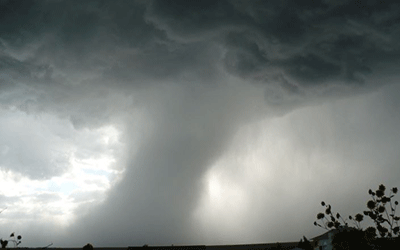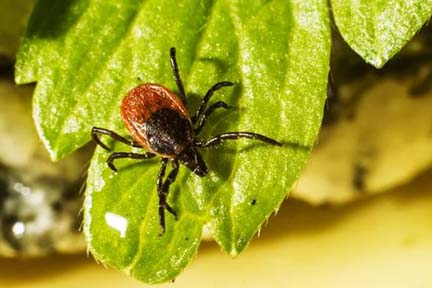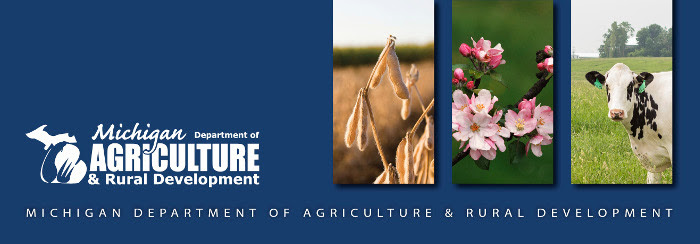
by orionontv | May 8, 2024 | Regional News

Governor Whitmer Declares State of Emergency Following Severe Storms and Tornadoes in Southwest Michigan
LANSING, Mich. – This evening, Governor Gretchen Whitmer declared a state of emergency for Kalamazoo, St. Joseph, Branch, and Cass counties after a severe storm system, including large hail up to four inches in diameter and at least two confirmed tornadoes, swept through the area leaving significant damage to buildings and roads.
“My heart goes out to all those impacted by tonight’s severe weather in southwest Michigan,” said Governor Whitmer. “State and local emergency teams are on the ground and working together to assist Michiganders. I’ve declared a state of emergency to ensure resources are expedited to the area and activated our State Emergency Operations Center. We will continue monitoring the situation and coordinating efforts overnight. I want to thank all the first responders working hard to keep Michiganders safe. We’ll get through this together.”
By declaring a state of emergency, Governor Whitmer has made available all state resources in cooperation with local response and recovery efforts in the designated area. The declaration authorizes the Michigan State Police, Emergency Management and Homeland Security Division (MSP/EMHSD) to coordinate state efforts above and beyond what MSP/EMHSD has already been doing in conjunction with local agencies.
“My heart goes out to all of the residents, business owners and communities in Kalamazoo County and the surrounding areas impacted by tonight’s tornadoes,” said state Senator Sean McCann (D-Kalamazoo). “I appreciate the swift work of our first responders, volunteers and neighbors to help those who were injured or experienced damages, and am grateful for the governor’s equally swift response to declare an emergency in the area and dedicate state support to assist with cleanup and repairs.”
“This evening our community has been directly impacted by the severe storm that moved through Southwest Michigan,” said state Representative Christine Morse (D-Texas Township). “The health and safety of family, friends and residents always comes first, and I can assure our community members that our local emergency responders are at work to ensure that anyone who needs assistance will get it. Along with my local and state partners we will continue to survey the damage and step in swiftly when and where needed. Daybreak will reveal the level of devastation, and I will be at-the-ready for every possible way to bring immediate relief to those affected. My office is available to help find resources and support families in need during this unexpected crisis.”
On the evening of May 7, a severe storm system swept through several counties in southwest Michigan. National Weather Service radar confirmed the storm system resulted in multiple tornadoes touching down in the affected areas. There is widespread damage, including homes and businesses that were destroyed, trees and power lines blocking roads, and extensive property damage.

by orionontv | May 7, 2024 | Community Event, Feature Writers
ORION TOWNSHIP, MICH. – On May 7, 2024, the Orion Center hosted a Cinco De Mayo Fiesta for senior residents and non-residents from noon to 1:30 p.m.
Mexican themed food, refreshments, and festivities took place in Dining Room C in the Orion Center as guests gathered and celebrated the Mexican holiday – popular with many Americans.
Nachos, tacos and burritos were served to seniors, as well virgin lime margaritas and margarita-style cookies and treats. Matt Pfeiffer, a recently appointed Orion Township Trustee Board Member, enthusiastically plated food to dozens of guests. Pfeiffer is running for Treasurer in the upcoming election.
“I love to do community service… It’s our duty to get involved,” Pfeiffer said.
During the ninety-minute event, the ukulele club performed historically Hispanic music, such as “Cinco de Mayo,” as well as Mexicanized American music classics like Johnny Cash’s “I Walk the Line.”
Many seniors enjoyed the music being played, giving rigorous applause after each song. The smiles of the delighted performers lit up the room.
Pat Lhota, a senior resident of Orion Township, attended the event and sat next to her friend – eating and remarking about the event.
“I love that they do these things. I love the band,” Lhota said.
The event was organized by Orion Center Recreation Programmer Melissa Opsahl – it was her first event that she put together.
“It was a lot of teamwork. I am really excited to have this be my first event,” Opsahl said.
The event appeared to be a success. The dining room was packed with attendees, who had a great time, enjoying food, listening to good music and being with the company of friends.
For more information on events like these, visit orionparks.com/senior_services or if you have any questions regarding an event, you can call Melissa Opsahl directly at 248-391-0304 x3511.




by orionontv | May 7, 2024 | Agriculture
For immediate release: May 6, 2024
Media contact: Jennifer Holton, 517-284-5724
Program contact: Emily Pochubay, 517-231-8723
MDARD offers guidance on creating tick-safe zones around the home
LANSING. – As warmer weather approaches, so does the increased risk of tick encounters, posing potential health threats to people and pets enjoying outdoor activities. That’s why the Michigan Department of Agriculture and Rural Development (MDARD) offers advice on how to create tick-safe zones around your home.
There are over 20 known tick species in Michigan. Most often, they survive by feeding on wildlife. Several species of ticks are known to bite people and pets; and the insects may harbor dangerous bacteria, viruses, or parasites. Not all ticks carry diseases, but tick-related diseases (including Lyme disease) do occur in Michigan and can be serious or fatal if not properly diagnosed and treated.
“Using insect repellents while outdoors and checking for ticks after being outdoors are common ways to prevent tick bites on people and pets, but other strategies can help reduce ticks around your homes without using pesticides,” said Steve Carlson, MDARD’s Pesticide and Plant Pest Management Division Director. “Integrated pest management, commonly referred to as IPM, uses multiple, systematic methods to minimize the impact of pests on people and property, while safeguarding the environment.”
Here are some simple IPM techniques to help reduce tick populations around your home:
- Clear tall grasses and brush around homes and at the edge of lawns.
- Place a 3-foot-wide barrier of wood chips or gravel between lawns, wooded areas, patios, and play equipment. This will restrict tick migration into recreational areas.
- Maintain short grass in lawns and keep leaves raked.
- Stack wood neatly in a dry area to discourage rodents that ticks feed on.
- Keep playground equipment, decks, and patios away from yard edges and trees. If possible, place these items in a sunny location.
If you do choose to use pesticides, follow these safety tips:
- Always follow label directions and wear the personal protective equipment specified on the label.
- Store pesticides in their original containers with proper labels.
- Keep pesticides locked up and out of the reach of children and pets.
- Use the amount specified on the label. Using additional product will not be more effective and may harm you, your pets, and/or the environment.
- Wash clothes that have been in contact with pesticides separately.
- Wash hands with soap and water after using a pesticide, including insect repellents.
- Use the Environmental Protection Agency’s search tool to find a repellent product that is right for you.
If you are interested in hiring a pesticide applicator to manage pests for you, choose a firm licensed by MDARD. Licensed firms meet the necessary education and experience requirements and employ pesticide applicators who have passed MDARD’s proficiency examinations. Their training and experience will help prevent accidental pesticide misuse that could harm people, pets, livestock, and the environment.
For additional information about ticks, including how to identify and remove a tick, visit the MDHHS website. Learn more about pesticide safety at Michigan.gov/MDARD. |

by orionontv | May 6, 2024 | Recreation
|
|
|
|
News Digest – Week of May 6, 2024
Upcoming open houses are a great time to experience Michigan’s Wetland Wonders and get some birding in!
|
| Here are a few of this week’s stories from the Michigan Department of Natural Resources:
See other news releases, Showcasing the DNR stories, photos and other resources at Michigan.gov/DNRPressRoom.
PHOTO FOLDER: Larger, higher-res versions of some of the images used below, and others, are available in this folder.
 Already completed the online portion of an approved hunter safety course but still need an in-person field day? There are plenty of spots left in two classes this week in Vestaburg, Montcalm County. Get full details, including registration, on each class: Already completed the online portion of an approved hunter safety course but still need an in-person field day? There are plenty of spots left in two classes this week in Vestaburg, Montcalm County. Get full details, including registration, on each class:
Learn more about hunter safety and other ways to responsibly enjoy our woods and water at Michigan.gov/RecreationalSafety.
 Spring is prime birding time, and upcoming open houses at Michigan’s Wetland Wonders are the perfect opportunity to learn more about the birdwatching hobby, Important Bird Areas and local ecosystems. These open houses are presented in partnership with MI Birds, a public outreach and education program created by Audubon Great Lakes and the DNR. Spring is prime birding time, and upcoming open houses at Michigan’s Wetland Wonders are the perfect opportunity to learn more about the birdwatching hobby, Important Bird Areas and local ecosystems. These open houses are presented in partnership with MI Birds, a public outreach and education program created by Audubon Great Lakes and the DNR.
Be sure to bring your own kayak or canoe for paddling through wetlands and marshes and a bike or good hiking shoes for trails, dress for the weather and enjoy these birding hotspots.
Nayanquing Point State Wildlife Area
Despite its small size, tens of thousands of ducks, swans, geese, wading birds, shorebirds, raptors, and songbirds migrate through Nayanquing Point SWA each spring, making it one of Michigan’s premier Wetland Wonders.
Restrooms and light snacks will be provided at the DNR Field Office, and just a half-hour north you can visit Wigwam Bay State Wildlife Area, or join in on the fun at Tawas Point Migration Days if you want to make a day trip out of your visit.
View event details and important information on accessibility.
Questions? Contact Brandy Dybas-Berger at 989-385-0958.
Pointe Mouillee State Game Area
Pte. Mouillee State Game Area is located between two globally recognized Audubon Important Bird Areas: the Detroit River IBA and Lake Erie Western Basin IBA. The state game area is also a recognized IBA and one of Michigan’s premier Wetland Wonders that supports large congregations of waterfowl and waterbirds during winter and migration, as well as supporting vulnerable breeding marsh birds like least bitterns and black terns each summer.
View event details and important information on accessibility.
Questions? Contact Adam Shook at 734-379-9692.
Harsens Island at St. Clair Flats State Wildlife Area
These 3,355 acres of strictly managed waterfowl habitat are part of the largest freshwater delta in the United States. Mallards are the most prevalent species seen each fall on the managed area, but black ducks, pintails, wood ducks and Canada geese are also observed each year. Along with waterfowl opportunities, St. Clair Flats is an Audubon Important Bird Area for the vulnerable secretive marsh bird populations it supports each summer and is one of Michigan’s premier Wetland Wonders.
View event details and important information on accessibility.
Questions? Contact Kaitlyn Barnes at 586-719-1111.
MI Birds aims to deepen all Michiganders’ engagement in the understanding, care and stewardship of public lands that are important for birds and local communities. |
 The next meeting of the Michigan Natural Resources Commission – Thursday, May 9, in Acme – leads off with a Fisheries Committee agenda that includes an overview of the Michigan Hydro Relicensing Coalition and a discussion on a historic dam removal on the Boardman-Ottaway River. The next meeting of the Michigan Natural Resources Commission – Thursday, May 9, in Acme – leads off with a Fisheries Committee agenda that includes an overview of the Michigan Hydro Relicensing Coalition and a discussion on a historic dam removal on the Boardman-Ottaway River.
The meeting also will include a recognition of former Commissioner Carol Rose, land use order amendments, a cormorant management update, the 2023 deer harvest report and deer management survey update, a DNR legislative report and several land transactions.
The meeting starts at 9 a.m. at the Grand Traverse Resort and Spa, 100 Grand Traverse Village Blvd. Before the meeting, at 8 a.m., the public is invited to enjoy Coffee with the Commissioners, an opportunity to speak with commission members in a less formal setting.
See the draft meeting agenda at Michigan.gov/NRC. For more information about the meeting, email NRC@Michigan.gov. |

Looking for a fun, friendly learning experience in the outdoors? In case you missed it, the DNR’s Becoming an Outdoors-Woman program is offering four Beyond BOW events this summer at various venues in Washtenaw, Roscommon and Marquette counties.
The BOW program gives women, 18 and older, an opportunity to improve their outdoors skills in a relaxed, noncompetitive atmosphere. In addition to being fun to participate in, the BOW and Beyond BOW classes offer important instruction on numerous outdoor skills, safety and appropriate outdoor clothing attire.
|
 See more pictures by Michigan state parks photo ambassadors at Instagram.com/MiStateParks. For more on the program, call Stephanie Yancer at 989-274-6182. (This photo is by Greg Viau for the Michigan DNR, at Lost Lake in Muskegon State Park in Muskegon County.) See more pictures by Michigan state parks photo ambassadors at Instagram.com/MiStateParks. For more on the program, call Stephanie Yancer at 989-274-6182. (This photo is by Greg Viau for the Michigan DNR, at Lost Lake in Muskegon State Park in Muskegon County.)
|
|
Looking to boost your knowledge of Michigan’s deep lore? Check out the Michigan History Museum System for places across the state to discover stories of Michigan’s past. |
|
Give archery a shot this summer – sign up for introductory archery programs and learn safety basics and terminology, practice with equipment and hone your technique.
|
|
|

by orionontv | May 6, 2024 | Feature Writers, High School Sports
Written Saturday May 4th at 11:40 PM
The Red Hawks will have a new boys basketball coach next winter.
Troy Athens coach Dave Scott has stepped down coaching the program according to Stephen Bell on X.
Scott has been at Troy Athens since 2011 taking over for legendary coach Bill Gerbie. He went 147-158 coaching the Red Hawks for 14 years. Scott won a district crown in 2014 falling to Clarkston in the regional semifinal that season.
The Red Hawks will have Nathan Piggott, Liam Dempsey, Nate Appledorn, Brendan Tucker, and Alex Beaubien coming back for the new coach. Troy Athens went 14-9 tying for second in the White. The Red Hawks fell 63-58 to Troy last season.
It will be very interesting to see who takes over at Troy Athens next season.
Stay tuned to OAA Now for the latest on this developing story.
Here is the tweet confirming the story.
https://twitter.com/BankHoops/status/1786387139401253295













 Spring is prime birding time, and upcoming open houses at Michigan’s
Spring is prime birding time, and upcoming open houses at Michigan’s  The next meeting of the Michigan Natural Resources Commission – Thursday, May 9, in Acme – leads off with a Fisheries Committee agenda that includes an overview of the Michigan Hydro Relicensing Coalition and a discussion on a historic dam removal on the Boardman-Ottaway River.
The next meeting of the Michigan Natural Resources Commission – Thursday, May 9, in Acme – leads off with a Fisheries Committee agenda that includes an overview of the Michigan Hydro Relicensing Coalition and a discussion on a historic dam removal on the Boardman-Ottaway River.

 See more pictures by
See more pictures by 